QuestionQUESTION: My water dragon laid an egg in her water dish almost 2 weeks ago. I found another egg, this one dented on the ground, then about 3 days ago she laid another egg in her water dish. She refuses to eat and syringe feeding her is very difficult. I can still feel eggs in her. I have tried warm baths. She spends a lot more time in the water than normal. I had a lay box for her, but she didn't use it. What should I do now?
ANSWER: Hi Pam,
If this has been on-going for two weeks now I really think the safest thing is to have a vet take a look at her. The vet will most likely want to take an x-ray and may administer oxytocin depending on the x-ray results.
The reasons why reptiles have difficulty laying their eggs are numerous. Most of the ones that you can influence involve pre-conditioning the female with a good calcium rich diet that will help produce firmly shelled eggs. Calcium also helps in the muscle contractions needed to expel them. There is some evidence with iguanas that females in more spacious enclosures that get more moving and climbing activity are less likely to suffer laying problems then sedentary females in small cages. A suitable laying box is another factor.
The few times that I have had them lay in the water has been when they have surprised me and I had not provided a laying chamber. They will instinctively look for someplace damp to deposit their eggs. The laying chamber substrate should be deep and moist enough that they can dig into it and it will hold its shape, like lightly packed moist sand. I might have suggested experimenting with the deepness, dampness and consistency of the lay box substrate if this situation was only a few days old. Females will retain their eggs if they cannot find a satisfactory place to lay. The situation can then change from choosing not to lay to not being able to lay them.
Whatever the reason she is retaining, the longer it goes on the more detrimental it will be to her health and the weaker she will become. She is more likely to respond to treatment and recover if she receives medical assistance before that stage. Good luck with her.
---------- FOLLOW-UP ----------
QUESTION: She has laid another egg in the water. I thought I could feel one more in her, but not sure. She is in a large vivarium, 6ft by 6ft by 3ft. She does a lot of climbing. I was surprised when she laid eggs. She is in a cage with a male. I have noticed him doing a lot of head bobbing and I think he mated her again yesterday. Could the male be putting stress on her? I have a smaller cage I could fix up and put her it it. Thank you, Pam Gray
ANSWER: Hi Pam,
The good news is that the eggs are coming out, albeit slowly. I still wonder why she is rejecting the laying chamber though. Did you notice any digging behaviour at all before all this began, anywhere in the cage?
I think separating her from the male is definitely worth a try. Stress inducing situations for reptiles are not always obvious to us. Overly 'attentive" male reptiles can absolutely be a stress for a female. It is often necessary to separate breeding pairs after the initial mating. If I were in your situation I would actually remove the male to the smaller enclosure for awhile. I think avoiding re-location stress by keeping her in familiar territory would be best for her.
---------- FOLLOW-UP ----------
QUESTION: My water dragon has never done any digging. I don't know if any of the eggs are viable. She hasn't laid any more eggs and I can't feel any. If she was mated again, will she lay more eggs in about 2 months. She still is not eating. Thank you in advance, Pam Gray
AnswerHi Pam,
Most reptiles (including CWD) store sperm from a single initial mating and use that to fertilize subsequent clutches in the season. The first clutch of eggs is usually around 2 months after breeding but the following ones can follow as soon as a month after that. They can also produce 3 or 4 clutches a year. In view of your current experience, let's hope your female keeps it to just one this year.
Do you happen to know how old your female is? Although they can breed at a year, it is much safer to wait until she is at least 18 months old. Both her instincts and her physical body will be better developed and prepared for the process at that age.

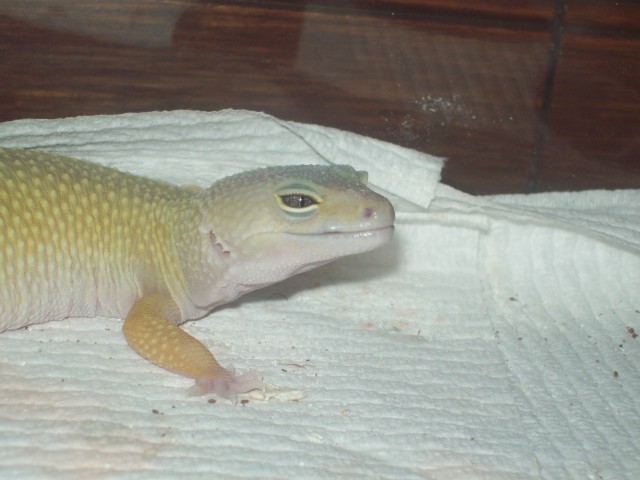 Whats wrong with me Gecko, not eating, lump?!?! HELP!
QuestionQUESTION: Okay, So I think my leopard gecko may
Whats wrong with me Gecko, not eating, lump?!?! HELP!
QuestionQUESTION: Okay, So I think my leopard gecko may
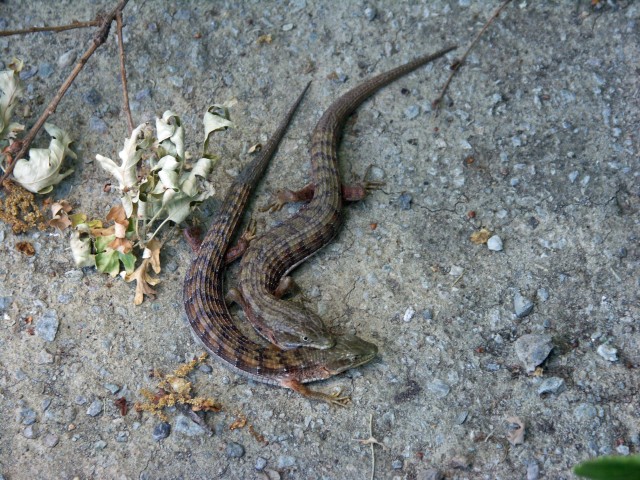 Alligator lizard behavior
Question
alligator lizards
I took a photo of 2 alligato
Alligator lizard behavior
Question
alligator lizards
I took a photo of 2 alligato
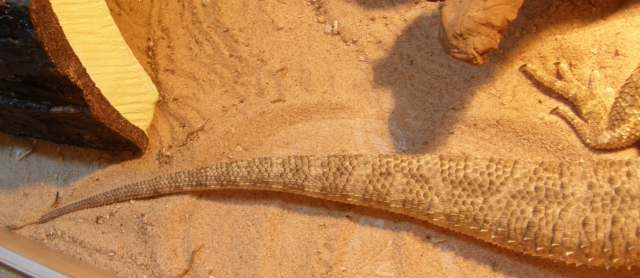 Off balance beardie?
QuestionQUESTION: So im quite worried at the moment, wi
Off balance beardie?
QuestionQUESTION: So im quite worried at the moment, wi
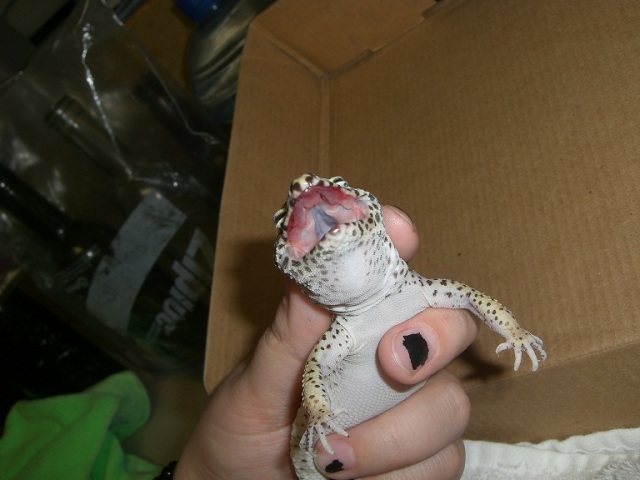 Mouth Rot
Question
Scratchs mouth
Hi there, I sent a question you
Mouth Rot
Question
Scratchs mouth
Hi there, I sent a question you
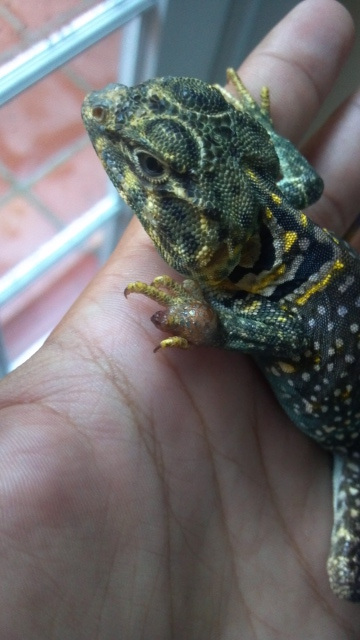 Collared lizard
QuestionQUESTION: Hi, My collared lizards finger has fa
Collared lizard
QuestionQUESTION: Hi, My collared lizards finger has fa